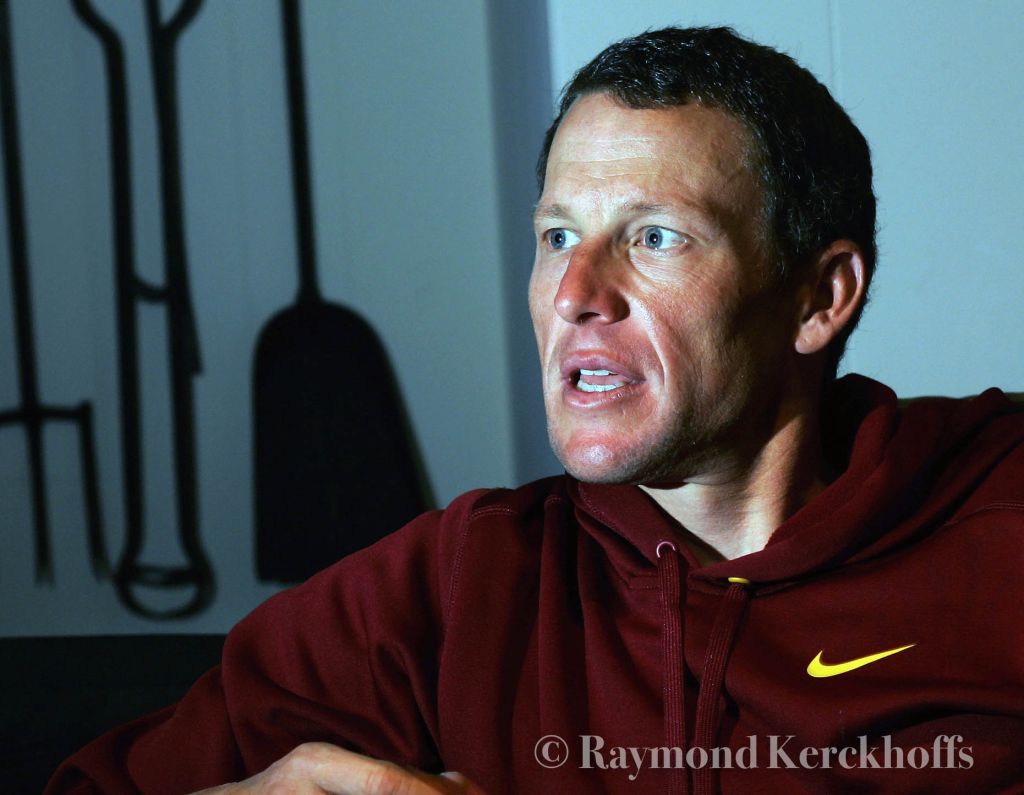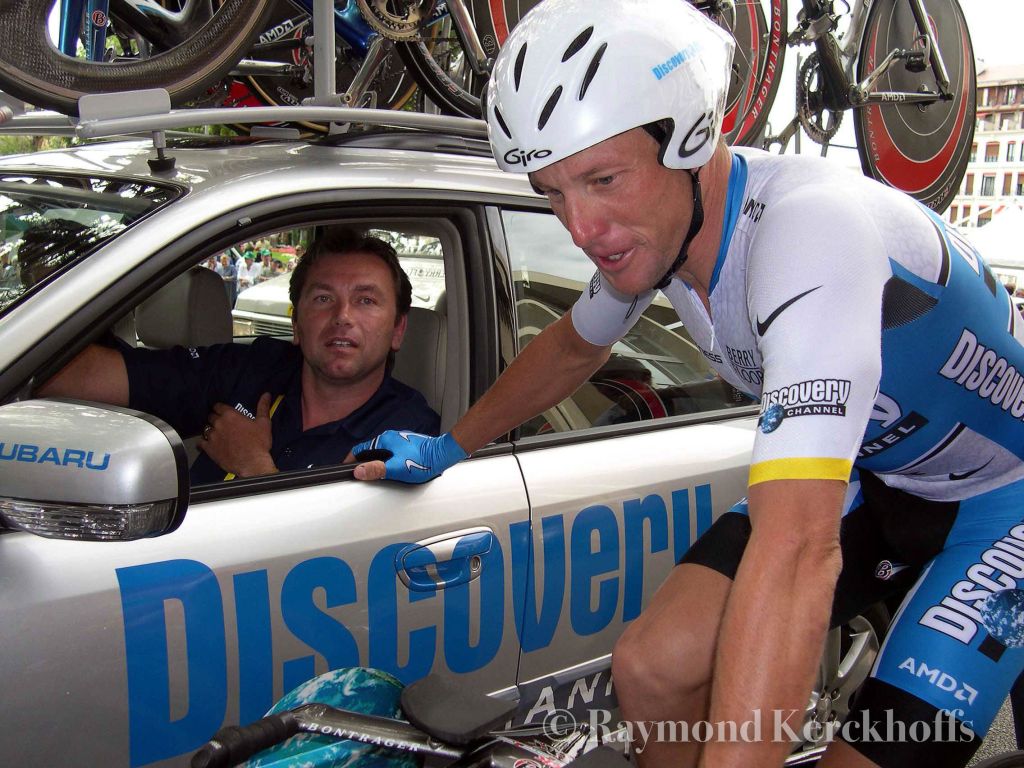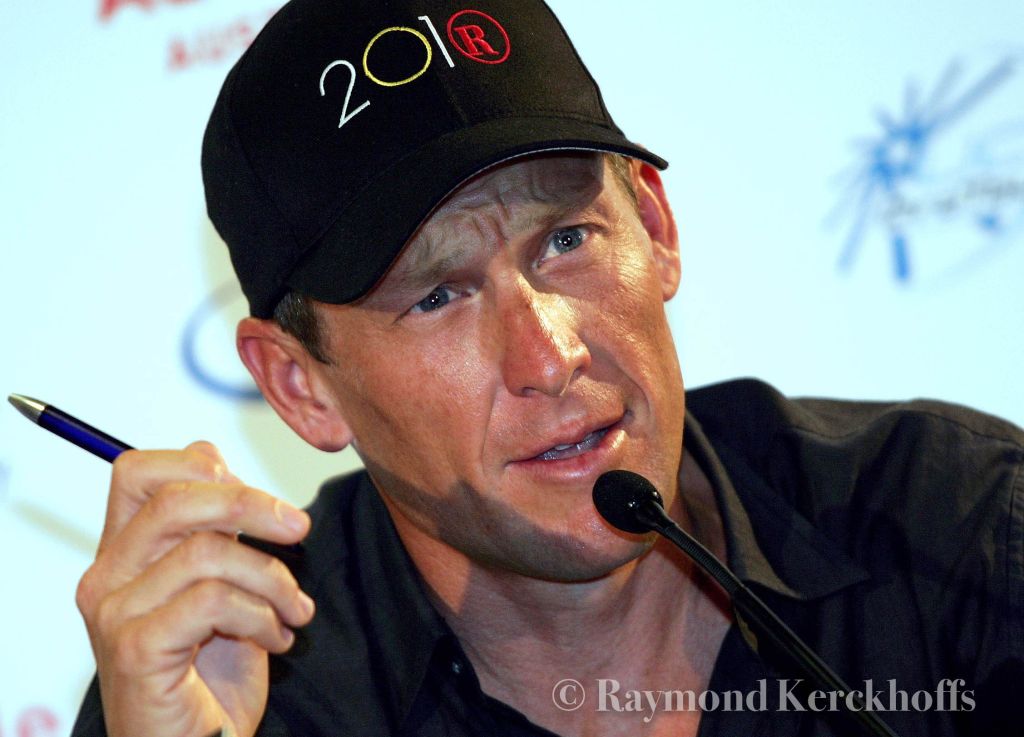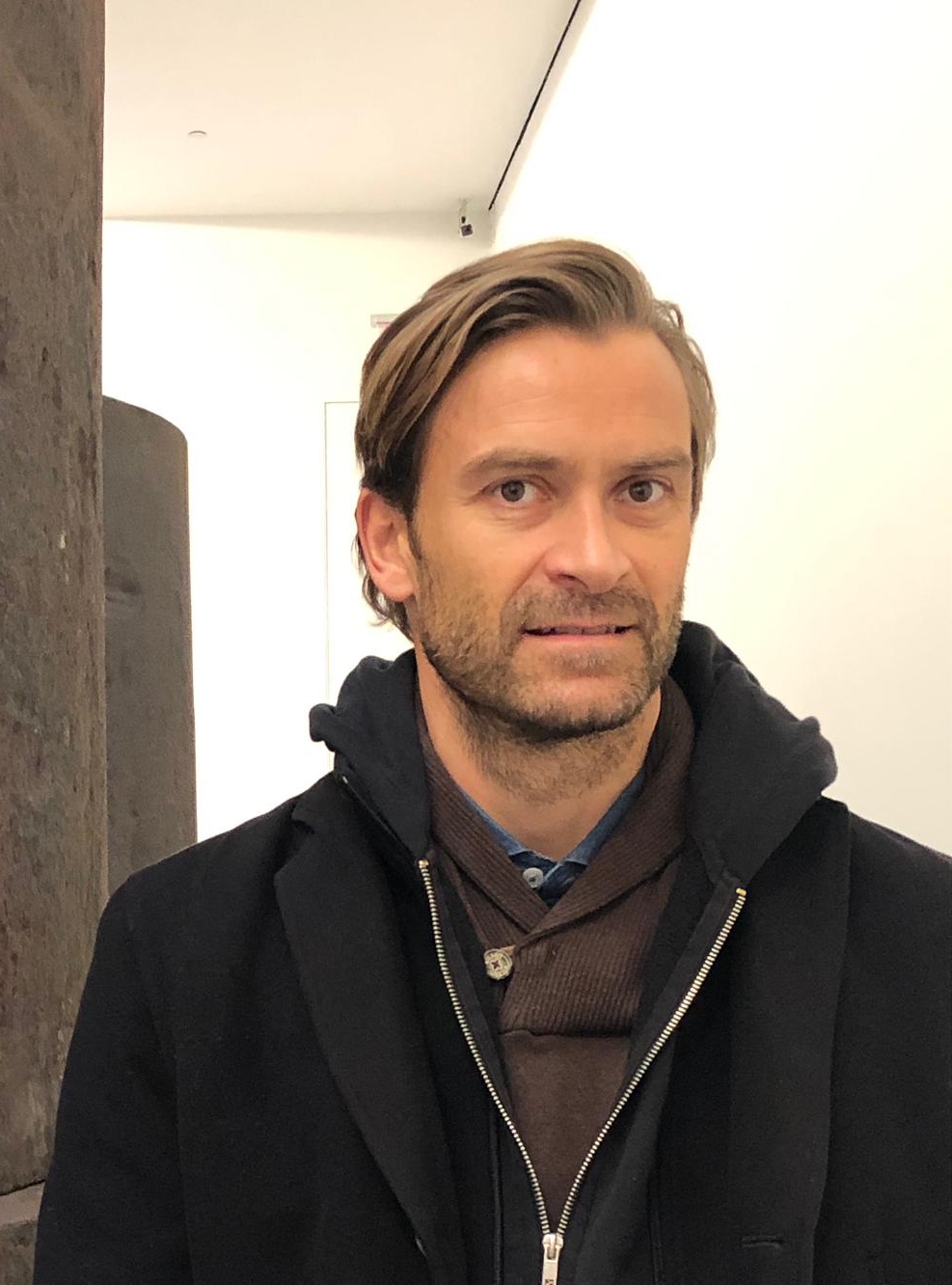For some, former cyclist Lance Armstrong is like an annoying stain you can’t get rid of, and for others, he is just a good story—the archetype of a modern scandal. For me, he is both, but mostly the latter. I still believe that the Armstrong story has something to tell us about the media’s uncritical desire for scandal.
The media have a penchant for scandal because it’s easy to angle: for or against, right or wrong, good or evil. Furthermore, the media has a proclivity for finding someone personally responsible. When a single person is highlighted, the journalist—and we, the readers or fans—need not worry so much about the context, the surrounding culture. Very conveniently, we can distance ourselves from the scandal.

PHOTO: RAYMOND KERCKHOFFS
This tendency can also be seen as a manifestation of psychology’s classic conceptual dualism between nature and culture. For example, the journalist tends to focus on the individual as either a hero or a villain. No story better exemplifies this than the Lance Armstrong story—or saga, if you wish.
In the majority of stories about Armstrong—I refer here to stories published after he confessed to the use of performance-enhancing drugs—he is, first of all, reduced to a naturally arrogant bully. Secondly, it is argued that his natural arrogance and greed ruined a pure, clean cycling culture.
It’s obvious that Armstrong cheated. Competition is often defined as a mutually acceptable quest for excellence through various challenges, some of which are related to rules. Armstrong didn’t follow the rules. Some suggest that cheating was in his DNA, although this would imply that the majority of cyclists in that epoch shared the same DNA.
Some (in my opinion) naïve sports journalists and fans argue that Armstrong would not have won the Tour de France even one of the seven times if it were not for all the doping. Here, we move into the world of guessing. As biochemist and sport scientist Chris Cooper says in Run, Swim, Throw, Cheat, “elite athletes are abnormal… It is entirely possible that by a combination of genetic predisposition and extensive training, the elite athlete will have already acquired the improved performance a drug or ergogenic aid purports to yield.” Or, as Annie Vernon, a former Olympic rower and now a sports journalist, writes in Mind Games: “Everyone has the physical tools—it’s the mental tools that separate the good from the great.” I don’t think anyone has to be a bully and ruin other people’s lives, but from sport psychology, we know that elite athletes not only have a clear interest in winning, but also an intense fear, even hatred, of failing. Football players like Cristiano Ronaldo, Sergio Ramos, and Zlatan Ibrahimović are known for hating to lose, even during training.

PHOTO: RAYMOND KERCKHOFFS
Armstrong’s use of performance-enhancing drugs has meant that between 1999 and 2005, there was no winner of the Tour de France. In 1998, the Italian Marco Pantani won, in 1997, the German Jan Ulrich, and in 1996, the Dane Bjarne Riis; all of them have admitted to the use of doping. Whether Spaniard Miguel Indurain, who won five times in a row before Riis, has used doping is a question not many journalists are asking. Similarly, many cyclists of the glorious past are still regarded as great athletes, regardless of their use of doping, such as the Belgian “cannibal” Eddy Merckx, who won the Tour de France in 1970, 1971, 1972, and 1974, and the French Bernard Hinault, who won the Tour de France in 1978, 1979, 1981, 1982, and 1985. Both have a history of unclean blood, yet both remain icons in the cycling world.
If the Tour de France directive acted coherently—that is, following the morale that no unclean rider could appear as winner—then they would admit that no one has won the Tour de France perhaps ever, except in the last ten years or so. Armstrong’s deletion from the history books is not only hypocrisy; it shows why the media rarely question the personification of a scandal. Maintaining that it was in Armstrong’s nature to cheat and never part of the cycling culture is as convenient as it is morally wrong. The moral paradox is this: The rules in sports aim to make an equitable quest for excellence, the keyword being equitable, and yet the punishment undermines this very same goal when Armstrong is not given equal treatment.
The motive for this is obvious: A scandal may bring down a few, but it should not bring down too many because then it would destroy the illusion that someone could be pure. We, fans and sportswriters like myself, obviously need the illusion of purity—the illusion that we are good just because we have cheated less. Regardless of what we do, we can always say, “Armstrong was worse.” More importantly, if there have never been pure winners of the Tour de France, then we can’t apply concepts like right and wrong, good and bad. For this reason, we accept the media-created and personified scandal, which maintains an equally artificial order: Armstrong = chaos; the cycling culture = order.
No one wants chaos, as chaos is equal to moral disaster.
An example can illustrate this: When the Irish sports journalist David Walsh did some imminent investigative journalism to bring down Armstrong (see the book The Program—Seven Deadly Sins), he (and/or others) did not follow up with investigative questioning of all the other riders on the long list. Why? Because it would undermine both the uniqueness of Armstrong’s story—making the scandal smaller—and the entire practice of sport journalism, which is very much about selling dreams. It seems that every scandal must be personified, and events are rarely seen as part of a larger cultural trend.

PHOTO: RAYMOND KERCKHOFFS
It seems—and I say this without revoking Armstrong’s individual responsibility—that the greater the need to maintain a romantic, pure, and clean image of cycling (or sports in general), the greater the need for one main demon. Many curious questions emerge: What about the sponsors, like Nike? I believe that they, too, had an interest in building Armstrong’s myth and then distancing themselves from him to maintain their own illusive image. Also, the World Anti-Doping Agency (WADA) claimed that Armstrong’s US postal team had the most refined doping program. Has this ever been verified? What about the Spanish Banesto-team, where Indurain’s old captain Pedro Delgado was caught for doping in the eighties? Or the German Team Telekom? Or the French Team Festina, best known for the 1998 Festina scandal in which French darling Ricard Virenque was taking out of the race. I wonder whether all these teams’ use of doping really was that unrefined. Or, to put it another way: How refined was Armstrong’s team when storing syringes in Coca-Cola cans, having a man drive around France with drugs on his scooter, or when Armstrong had to bully people? Furthermore, how extraordinary was the program compared to what exists in other sport disciplines, such as the sacred American disciplines like basketball and baseball, or football? For example, during the trial against the Spanish sports doctor Eufemiano Fuentes, it was revealed that his doctor’s list contained names of some tennis and football players, and yet even today, we don’t know the names of all of those athletes. Is this because those in other disciplines are better liars? Is it because we—fans and sportswriters—don’t want to ruin the illusion of purity?
Almost ten years after Armstrong’s confession, it seems like we all have our reasons for making him the sole archvillain who ruined everything. However, the biggest tragedy is not that Armstrong was not the first or the last doper in cycling (or in sports); I doubt that he was even extraordinarily doped compared to many other top riders in that epoch. No, the real tragedy is that we—both fans of cycling and sportswriters—let him take all the blame, while we refuse to look at the history of cycling and sports in general.



Thank you fantastic read!
Been saying all along, its easy for people to claim they were betrayed, or that Lance deceived everyone. In the midst of it, I remember discussing how there were unconfirmed rumors of his cheating, and the same folks who felt deceived would retort with moral indignation how dare I taint our hero. This kind of thinking and group-think allows for those that buy the yellow wrist band, that become big consumers of cycling, who reveled in their champions glory to later disregard their own blind allegiance, and believe they were a victim of some sort. Every boy and girl needs… Read more »
He literally had a positive test in his first tour. Then he brazenly lied and UCI covered it up. American fans are naive about the sport, and American fans were betrayed. At some point, close watchers started to get it (around win #3 or 4)
Nice story from documentists again but they still don’t seem to understand that climbing on steep hills with an rpm from nearly 100 is impossible without electricity, material dope! Besides he misses the legs(mollets) for a real climber/grimpeur, only with a good mentality and for all arrogancy we cannot eliminate everybody in the mountains
Really worse reading
It’s the win at any cost mentality. Starting in the home, at the little league diamond and moves up the ladder. Only the strong willed will say NO.
Cheating takes root in every aspect of our society. Look at our past Presidents, Bill Clinton, President Kennedy. I could go on and on.
It takes guts and conviction to stand by your principles. And for those that stay strong. Victory prevails in the end.
Well written, but the author fails miserably in understanding a few major points. I’ll just start with the first two. First, you don’t recognize that the tolerance for doping by fans is different for different sports. For example, most fans of boxing and football could care less if these gladiators are all doped up in the locker room, before competing. They’re dirty sports and people just accept that and as fans prefer not to be reminded of that fact. They just want to enjoy the spectacle. But with cycling (in America, at least), soccer moms are fans and they have… Read more »
True of many solo sports, when the playing field equalizes the best still rise.